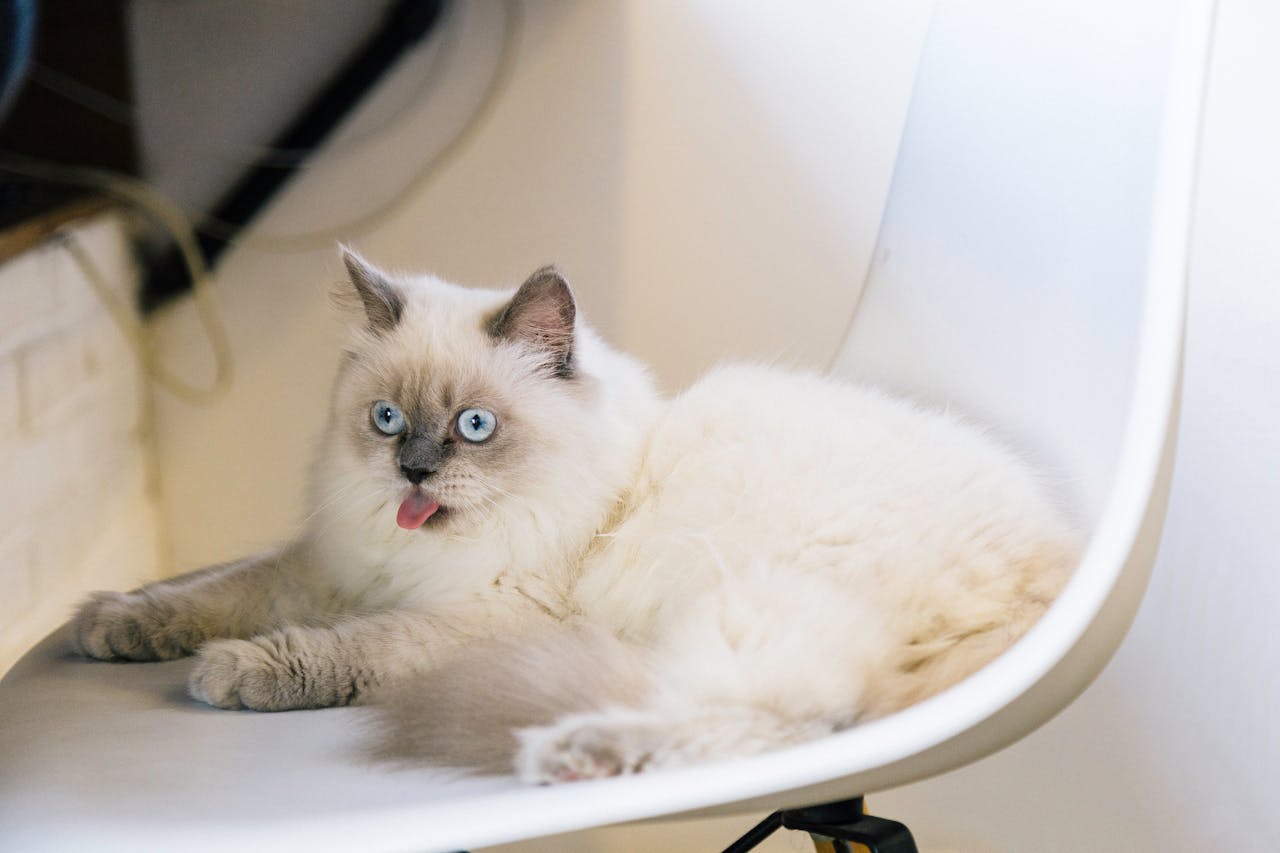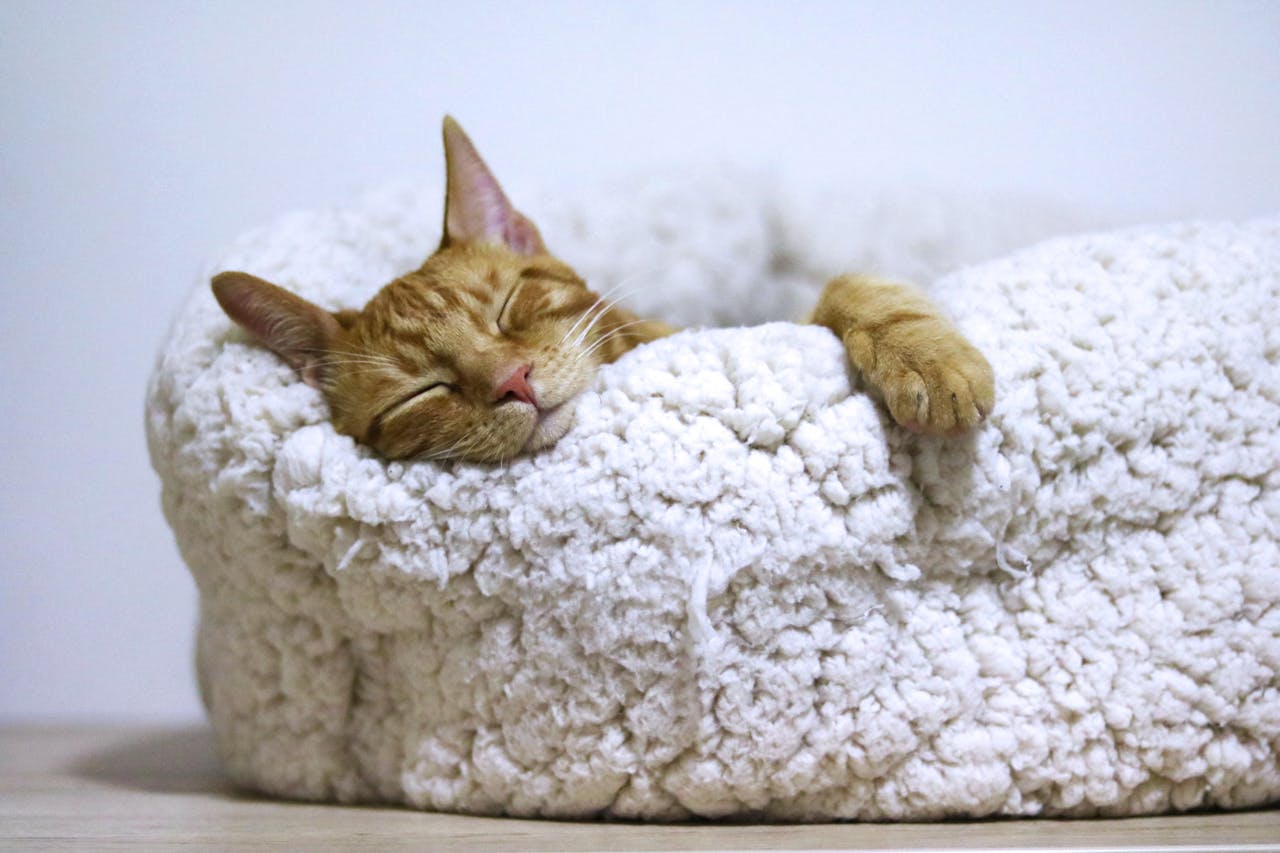How to Keep Your Cat Healthy and Happy: A Complete Guide
Cats are independent, curious creatures, but they still need plenty of care and attention to stay healthy and happy. As a pet owner, you want to ensure that your furry friend thrives in both body and mind. From providing proper nutrition to ensuring mental stimulation, there are several ways to enhance your cat's well-being.
This guide will cover the essential tips to help keep your cat purring, playful, and in peak condition.

Proper Nutrition: The Foundation of Feline Health
Feed a Balanced Diet
Feeding your cat a nutritious, balanced diet is one of the most critical factors for their health. Cats are obligate carnivores, which means they need a diet primarily based on animal protein. Look for high-quality commercial cat foods that list meat or fish as the first ingredient, as this ensures your cat is getting the essential nutrients, like taurine, that they need for heart and eye health.
Maintain a Regular Feeding Schedule
Feeding your cat at consistent times each day helps regulate their digestive system and prevents overeating. Whether you choose to free-feed dry food or offer portion-controlled meals, avoid giving too many treats, as they can lead to obesity.
Fresh Water Access
Always ensure your cat has access to fresh, clean water. Cats aren’t always inclined to drink enough, so consider using a cat water fountain to encourage hydration. Wet food is another great way to help your cat stay hydrated, as it contains a higher water content than dry kibble.
Routine Vet Visits and Vaccinations: Preventive Health Care
Regular Check-Ups
Taking your cat for annual vet check-ups is essential for preventing health issues before they become serious. Your veterinarian can conduct physical exams, dental check-ups, and blood tests to catch potential problems early.
Vaccinations and Parasite Control
Keep up with your cat’s vaccination schedule to protect them from common feline diseases like rabies, feline leukemia, and feline distemper. Additionally, use flea and tick preventatives and have your cat checked regularly for parasites like worms, which can impact their health if untreated.
Spaying and Neutering
Spaying or neutering your cat not only helps control the pet population but also improves their health. Spayed and neutered cats tend to live longer, have fewer behavioral issues, and are at a lower risk for certain cancers.
Mental Stimulation and Physical Activity: Keeping Your Cat Engaged
Provide Toys and Enrichment
Cats are intelligent animals that require mental stimulation to stay happy. Invest in a variety of toys that encourage hunting instincts, such as feather wands, laser pointers, or puzzle toys filled with treats. Rotating toys regularly will keep things fresh and exciting.
Create Vertical Space
Cats love to climb and perch, so providing cat trees, shelves, or window perches can satisfy their desire to explore and observe their surroundings. High places give them a sense of security and mental enrichment.
Daily Playtime
Spend time playing with your cat every day to keep them physically active and mentally engaged. Interactive play mimics hunting behavior and strengthens the bond between you and your cat. It’s also an excellent way for indoor cats to burn off excess energy.
Litter Box Hygiene: A Clean Environment Is a Happy Environment
Keep the Litter Box Clean
Cats are very particular about cleanliness, especially when it comes to their litter boxes. Scoop the box daily and change the litter at least once a week to ensure it stays clean. A dirty box can lead to litter box avoidance and potential health issues, like urinary infections.
Provide Enough Litter Boxes
If you have multiple cats, it’s important to provide one litter box per cat, plus an extra. This helps prevent territorial disputes and ensures that each cat feels comfortable using their own space.
Choose the Right Location
Place the litter box in a quiet, low-traffic area of your home. Cats prefer privacy when using the bathroom, and a well-placed litter box reduces stress.
Grooming: Maintaining a Healthy Coat and Skin
Brush Regularly
Regular brushing helps reduce shedding, prevents matting, and keeps your cat’s coat healthy. It’s also an opportunity to check for any skin abnormalities, fleas, or ticks. Long-haired cats may need daily grooming, while short-haired cats typically need brushing once or twice a week.
Trim Their Nails
Trimming your cat’s nails every few weeks will keep them from getting too long and prevent painful breaks. If your cat doesn’t like nail trims, consider using a scratching post to help them keep their claws in check naturally.
Dental Care
Good oral hygiene is important for cats, too. Brushing your cat’s teeth regularly can prevent dental disease, which is a common issue in older cats. You can also ask your vet for dental treats or toys that help keep teeth clean.
Building a Safe and Comfortable Home Environment
Provide Safe Hiding Spots
Cats feel more secure when they have a place to hide, especially in stressful situations like thunderstorms or when guests come over. Providing a quiet, cozy space like a box or a dedicated cat bed can help reduce their anxiety.
Cat-Proof Your Home
Make sure your home is free of hazards like toxic plants, exposed wires, or small objects that your cat could swallow. Keep harmful foods, cleaning supplies, and medicines out of reach.
Consider Indoor Living
Indoor cats generally live longer, healthier lives than outdoor cats because they’re less exposed to dangers like traffic, predators, and disease. If you want to let your cat experience the outdoors, consider supervised outings on a leash or creating an enclosed “catio” (cat patio) where they can safely enjoy fresh air.
Emotional Bonding: The Key to a Happy Cat
Offer Affection, but Respect Their Boundaries
Cats show affection in different ways, and it’s important to learn your cat’s preferences. Some love cuddles, while others prefer gentle head scratches or simply sitting near you. Pay attention to their body language, and give them space when needed.
Provide a Routine
Cats thrive on routine. Try to keep feeding times, playtime, and bedtime consistent, as it helps your cat feel secure and reduces stress.

Conclusion: A Holistic Approach to Feline Wellness
Keeping your cat healthy and happy requires a combination of proper care, mental stimulation, and emotional bonding. By focusing on their physical needs, providing a stimulating environment, and offering plenty of love, you can ensure that your cat leads a fulfilling life. With the right approach, your feline friend will thrive in your care for years to come.




























